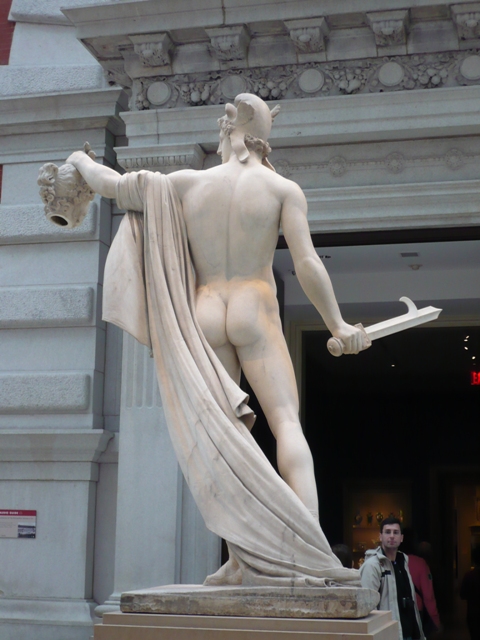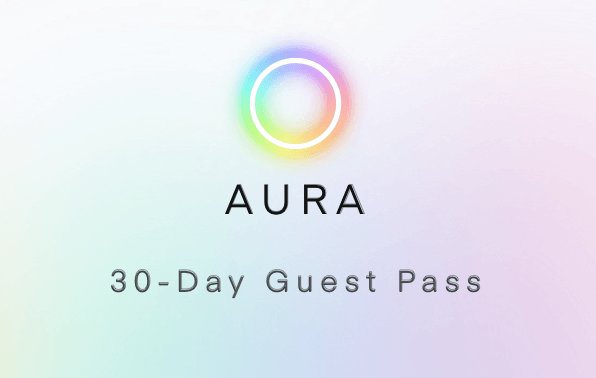By strength not Perseus could himself defend,
For who in strength with Atlas could contend?
But since short rest to me thou wilt not give,
A gift of endless rest from me receive,
He said, and backward turn’d, no more conceal’d
The present, and Medusa’s head reveal’d.
Soon the high Atlas a high mountain stood,
His locks, and beard became a leafy wood.
His hands, and shoulders, into ridges went,
The summit-head still crown’d the steep ascent.
His bones a solid, rocky hardness gain’d:
He, thus immensely grown (as fate ordain’d),
The stars, the Heav’ns, and all the Gods sustain’d.Metamorphoses by Ovid, translated by Garth, Dryden et. al. Book IV – The Story of Perseus
Truth. What is it? Is it something undeniable, indelible, permanent? Is it merely perception? Is it what distinguishes knowledge from faith? Fact from fantasy? Or is it the foundation upon which we build our realities? Does truth come to resemble a kingdom over which we quietly reign? We’re not proselytisers or fanatics after all, we just want to keep our little kingdom of certainty intact. But in protecting our kingdoms, do we run the risk of becoming prisoners within their very walls?
Atlas, from Greek myth, was charged by Zeus to hold the heavens upon his shoulders as punishment for choosing the losing side in a war between the Titans and the Olympians. A terrible burden, Atlas subsequently tried to trick Heracles (Hercules) into bearing the load but was outfoxed by the young demi-god and had to continue carrying the celestial spheres indefinitely. The quote above comes from a variation of this Atlas myth and features not Heracles but his great-grandfather, Perseus. In that version Atlas is a giant protecting his considerable domain –
Here Atlas reign’d, of more than human size,
And in his kingdom the world’s limit lies.
Courtesy of an oracle’s prophesy, he lives in fear of his kingdom being taken from him by someone born of Zeus. Sure enough, Perseus happens along requesting a place to sleep for the night and offering to tell tales of his heroic feats by way of payment. To boost his reputation in the giant’s eyes he mentions that the blood of Zeus does indeed flow through his veins. On hearing this, Atlas is aghast and refuses Perseus permission to stay at which insult the favoured hero unveils Medusa’s serpent-tressed head, a glimpse of which turns the beholder to stone. All at once Atlas becomes that which he was determined to protect, his massive form metamorphosing into rock and earth, fixed forever (the Atlas Mountains of North Africa are attributed to this myth).
Now, I have begun with this little tale not to flaunt my limited knowledge of Greek and Roman mythology but because Atlas’s fate, and I don’t use that word lightly, serves as a nice metaphor for my own inklings about truth and the role it can play in our lives. I wonder if truth is a form of fate, a destiny we spend our lives working out how to pursue. Or one which we do our utmost to perpetually avoid? The fate of Atlas was to be undone by a child of Zeus so he spent his life trying to dodge the bullet and to the very last, even when it seemed inescapable, he denied its validity. He manufactured an alternative truth. Are we not all guilty of sometimes playing this game?
‘The truth will set you free’ is a popular saying given to us from the bible. My suspicion is that many of us are terrified of that particular brand of freedom and in our attempts not to discover it we concoct a myriad of other truths. Truths designed to obfuscate and deflect. Truths designed to keep us exactly where we are. In a safe place. Our alternative truths become the walls of a panic room except in this panic room there is a door in each wall and we spend all our time checking and double-checking that the doors are definitely locked. So we can relax. In our vacuum of certainty. Certainty that we will not be progressing any further, thank you very much, because we know all we need to know and that suits us fine. This is truth as paralysis. Nice, as long as you don’t mind looking out the same window for the rest of your life.
Another way to interpret this is as follows. We hide from ourselves. Let me ask a stupid question: isn’t it easy to see other people? Look around, they’re everywhere. We love them, hate them, admire them, desire them, envy them, are indifferent to them but we do see them. And with seeing them comes a certain amount of analysis, judgement and decision-making all of which affects how we proceed in relation to those people. And of course we are in everybody else’s line of vision so there exists what is effectively a reciprocity. But what then, is our view of ourselves? And how reliable is our perspective? And how often do we really look and ask ‘what exactly is going on here? What is the truth of my situation?’
Are we afraid our ‘true’ truths will, like Medusa’s head, turn us to stone, making permanent our failings or anxieties? Ossifying the most dreaded parts of ourselves? As long as we don’t look we can stay in the realm of the yet-to-arrive and the yet-to-be-discovered. But if we do look, then the new reality must be acknowledged. By staying in the indefinite we are shutting the door on possibility. Ironically this is not the form of closure we benefit from. The truths we hide from are the most powerful because they have the potential to be either liberating or debilitating. It becomes a high stakes game and all too often it is easiest to simply fold and walk away from the table. We tell ourselves we’d rather not risk it. But this begs the question – what exactly is at stake?
The collateral in this case is entirely what you most fear to lose. For me, that’s my soul. Dramatic, eh! I don’t mean soul in the literal, Devil Went Down to Georgia way, but more in terms of self-respect. For me it’s a simple concept. I’m either standing beside myself, facing into whatever fate/life has to offer,or else I’ve turned my back on myself, pretending there’s nothing to fight for. It’s a bit extreme reducing it to those terms but if you can’t cut the crap and get to the heart of things, I’m not sure what hope there is for real evolution. Are you really content to stay in the cave, with a boulder blocking your view? Don’t you want to discover what’s out there?
Maybe the original Greek storytellers knew we all had to face our demons. We all had to come face to face with Fate at some point. And they created a universe of gods and demi-gods, heroes and monsters, oracles and deceivers, all playing with truth and artifice as they negotiated life’s blessings and pitfalls, to show us the everchanging faces of truth, reality and existence.
Have your truths changed? Does ‘truth’ still mean something in this cynical age?




Hard core insight dude. I’m not sure I like you anymore : )
Ah, don’t be like that…
[…] to shape our reality. I touched on truth and reality earlier this year in a classically-themed post here but today I’m more curious about starting points that continually bring us back to the same […]